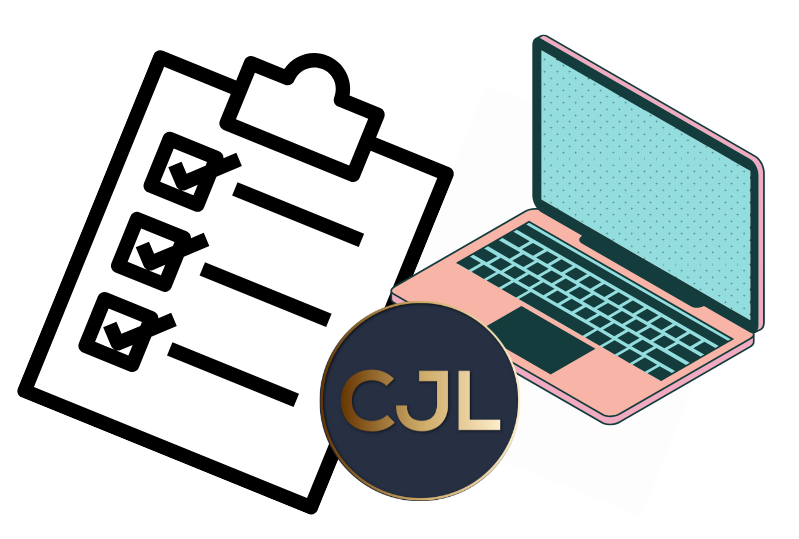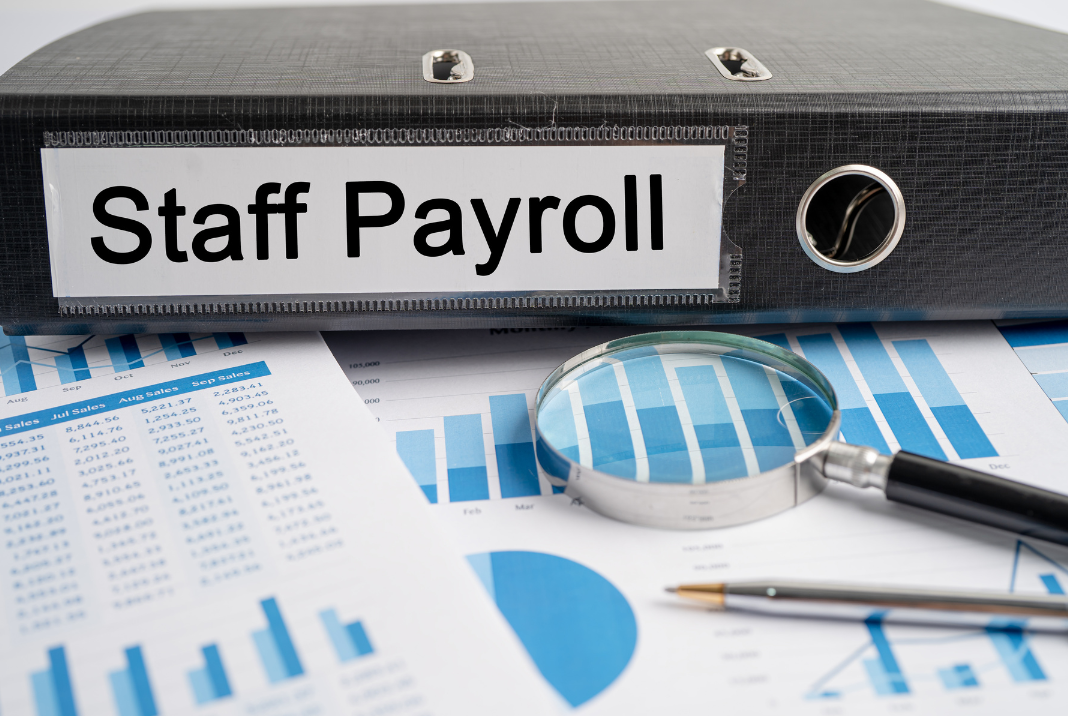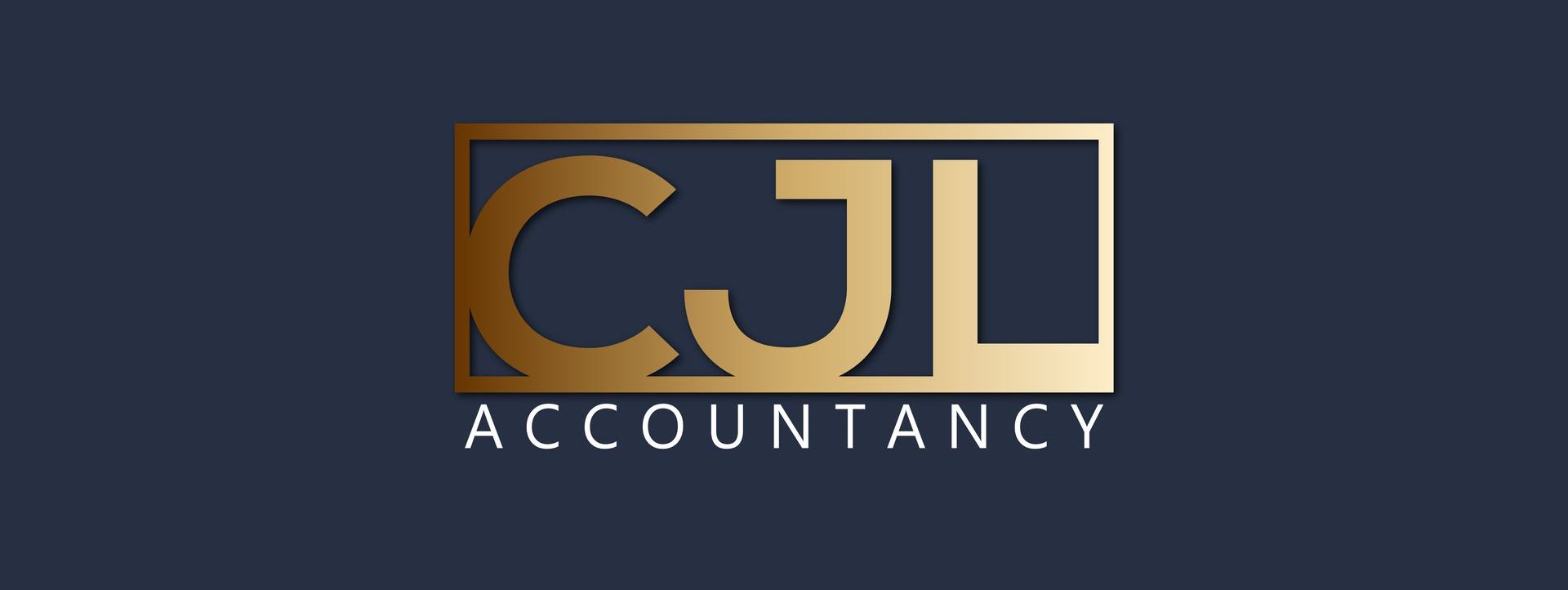Influencers and Content Creators Guide to Tax
Chrissy Leach • 24 August 2024
An overview of what you need to know about tax as a UK-based influencer

As the digital landscape continues to evolve, so has the rise of social media influencers and content creators. Whether you’re sharing fashion tips on Instagram, reviewing tech gadgets on YouTube, or promoting fitness routines on TikTok, the influencer industry offers lucrative opportunities. However, with these opportunities come responsibilities; particularly when it comes to tax.
Understanding your tax obligations as an influencer is crucial to avoiding pitfalls and ensuring that you comply with HMRC regulations. This guide provides an overview of what you need to know about tax as a UK-based influencer.
Do You Need to Pay Tax?
If you're earning money from your social media activities, you need to declare your income to HMRC. This is true whether your earnings are from sponsored posts, affiliate marketing, product placements, or other sources. Essentially, if you're receiving any kind of payment or benefit in exchange for your online content, you may be liable to pay tax.
For most, this will involve registering as self-employed and completing a self-assessment tax return each year.
What Counts as Income?
Income for influencers and content creators can take many forms:
- Monetary Payments: Cash received for services such as sponsored posts, shoutouts, or brand partnerships.
- Gifts and Free Products: If a company sends you free products or experiences in exchange for a review or mention, the value of these items counts as income. According to HMRC, the value should be based on the market value of the item, not the price you would pay if you had purchased it at a discount.
- Affiliate Marketing Earnings: Commissions earned from affiliate links should also be declared as income.
- Ad Revenue: Earnings from platforms like AdSense or TikTok’s Creator Fund are taxable.
Allowable Expenses: What Can You Deduct?
The good news is that you can offset some of your earnings by claiming allowable expenses, which reduce your taxable income. Allowable expenses are costs incurred “wholly and exclusively” in the course of your business. Common examples for influencers and content creators include:
- Equipment: Cameras, computers, software, and other equipment used for creating content.
- Marketing and Advertising: Costs for promoting your social media channels.
- Professional Services: Fees paid to accountants, legal advisors, or agents.
- Home Office Costs: If you use a portion of your home for work, you can claim a proportion of your rent, utilities, and internet costs.
- Travel Costs: If you travel for content creation, you can claim the cost of travel, accommodation, and subsistence. Although be aware that any personal element cannot be claimed.
Keep records and receipts for all your expenses, including details of what the cost was for, as HMRC may request evidence during a compliance check.
VAT Considerations
If your turnover exceeds £90,000 in a 12-month period, you’ll need to register for VAT. This threshold applies to your total business income, so it’s important to keep track of all earnings. Once registered, you’ll need to charge VAT on your services and submit regular VAT returns.
For influencers and content creators dealing with international clients, the VAT rules can become complex, particularly if you’re working with businesses based outside the UK or within the EU.
Dealing with HMRC: Self-Assessment and Deadlines
As an influencer or content creator, you’ll typically be required to complete a self-assessment tax return, which includes:
- Income from Self-Employment: This is where you’ll report your earnings as an influencer or content creator.
- Employment Income: If you also have a regular job, include your salary details here.
- Other Income: Report any additional income, such as investments or rental income.
Key deadlines include:
- 5 October: Register for self-assessment if you’ve started earning as an influencer in the previous tax year.
- 31 January: Submit your online self-assessment tax return and pay any tax owed for the previous tax year.
- 31 July: Pay a payment on account if applicable.
Late submissions or payments can lead to penalties and interest, so it’s vital to keep on top of these deadlines.
Seek Professional Advice
As a relatively new industry, it’s likely that HMRC will start to open checks into the tax affairs of influencers and content creators. It’s vital that good records are kept as this helps with any checks.
Consulting with an accountant who understands the nuances of the digital economy can save you time and help you avoid costly mistakes.
Conclusion
The life of an influencer can be exciting and financially rewarding, but it also comes with responsibilities—particularly when it comes to tax. By understanding your obligations, keeping accurate records, and seeking professional advice when needed, you can ensure that your tax affairs are in order, allowing you to focus on what you do best: creating content that engages and inspires your audience.
Remember, failing to properly manage your tax obligations can lead to fines, penalties, and in extreme cases, prosecution. So, stay informed, stay compliant, and don’t let tax worries stand in the way of your success.

Running a business means wearing many hats and understanding your finances is one of the most important ones. But accounting terms can sometimes sound like a different language. To help, we’ve put together a simple guide to common accountancy terms you’ll see on reports, invoices, or from your accountant, explained in plain English. Assets Things your business owns that have value - for example, cash, stock, vehicles, or equipment. Assets are what help your business operate and generate income. Liabilities The opposite of assets - these are what your business owes to others. That includes loans, unpaid bills, or taxes due. Equity Equity is what’s left when you subtract your liabilities from your assets. It represents the owner’s share of the business, often referred to as “net assets.” Directors, Shareholders and Sole Traders In the UK, there are different ways to run a business, and each comes with its own responsibilities. A sole trader runs the business as an individual (referred to as being self-employed) - you keep all the profits after tax but are personally responsible for any debts. A shareholder owns part (or all) of a limited company. Profits can be paid to shareholders as dividends. A director manages the day-to-day running of a limited company. Many small business owners are both directors and shareholders, meaning they can take a salary and dividends as income. Understanding which structure applies to you helps ensure your accounts and taxes are handled correctly. Turnover (or Revenue) Your total sales or income before any expenses are taken off. It’s a key measure of how much your business is bringing in. Profit What’s left after all costs have been deducted from your turnover. Gross profit is your sales minus the direct costs of making or buying your products. Net profit is what’s left after all expenses, including overheads and tax. Expenses The costs of running your business, such as rent, insurance, travel, or subscriptions. Keeping track of expenses is essential for accurate accounts and tax returns. Cash Flow Cash flow shows how money moves in and out of your business. A positive cash flow means more money is coming in than going out which keeps things running smoothly. Accounts Payable Money your business owes to suppliers, often referred to as creditors. Accounts Receivable Money owed to your business by customers, sometimes called debtors. Balance Sheet A snapshot of your business’s financial position at a specific point in time (usually your accounting year end). It shows assets, liabilities, and equity all in one place. Profit and Loss Account (P&L) A report showing your business income and expenses over a period (usually your accounting year). It tells you if you made a profit or a loss. VAT (Value Added Tax) A tax added to most goods and services. If your business is VAT-registered, you’ll need to charge VAT on sales and submit returns to HMRC. You'll need to register for VAT if your taxable turnover exceeds the threshold, there's more information on this here . Corporation Tax If you run a limited company, you’ll pay Corporation Tax on your company’s profits each year. Dividends Dividends are payments made by a limited company to its shareholders from profits after Corporation Tax. They’re a common way for director/shareholders to take income, alongside a salary. Dividends must be supported by enough profit in the company, and each payment should be documented with a dividend voucher and board minute. Self-Assessment If you’re self-employed or receive other untaxed income, you’ll need to file a Self Assessment tax return to HMRC to calculate and pay your Income Tax and National Insurance. Need help making sense of your accounts? At CJL Accountancy, we believe finance doesn’t have to be complicated. We explain things clearly, help you understand your numbers, and make sure you’re compliant with HMRC - without the jargon. 📞 Get in touch to find out how we can make your accounts simple and stress-free.

Tax can be complicated - and with so many recent changes announced in the Autumn Budget, it’s never been more important to understand how to manage your tax affairs the right way. At CJL Accountancy, we often hear business owners and individuals use the terms tax evasion, tax avoidance and tax planning interchangeably. But there are some big and crucial differences between them. Let’s break down what each one really means. Tax Evasion - Illegal and Punishable Tax evasion is when someone deliberately hides income or falsifies information to reduce their tax bill. Examples include: Not declaring all business income Paying workers cash “off the books” Claiming personal expenses as business costs Tax evasion is illegal and can lead to severe consequences such as fines, penalties, and even prosecution. HMRC has sophisticated systems in place to detect irregularities, so it’s never worth the risk. Tax Avoidance - Legal but Risky Tax avoidance involves using loopholes or complex arrangements to reduce tax bills in ways that may not align with the spirit of the law. It’s technically legal, but HMRC regularly challenges aggressive avoidance schemes. For example: Setting up artificial company structures solely to pay less tax Using offshore schemes or trusts with no real business purpose These strategies can backfire, resulting in large, backdated tax bills, penalties, and reputational damage. Tax Planning - Legal, Sensible and Essential Tax planning, on the other hand, is both legal and encouraged. It’s about making smart financial decisions to manage your tax efficiently, within the rules. This might include: Making use of allowances and reliefs (e.g. ISA limits, pension contributions, capital allowances) Structuring your business in the most tax-efficient way Timing income or expenses to maximise reliefs With changes announced in the Autumn Budget, effective tax planning has become even more important. Whether that’s adjusting salary and dividend mixes, reviewing capital allowance claims, or preparing for new thresholds, planning ahead can help you stay compliant while minimising unnecessary tax. Why Work With a Qualified Accountant A qualified accountant can help you: ✅ Stay compliant with HMRC rules ✅ Identify opportunities for legitimate savings ✅ Plan ahead for future tax changes At CJL Accountancy, we help clients make confident, informed decisions - balancing compliance with smart planning.

At CJL Accountancy, we’ve summarised the key announcements that could impact your personal or business finances - and what you can do to prepare. 1. Income Tax Thresholds Frozen Until 2031 The personal allowance (£12,570), basic rate threshold (£37,700), and higher rate threshold (£87,440) were already frozen until March 2028 - and this freeze has now been extended to March 2031. This is effectively a stealth tax: as wages rise, more income falls into higher tax brackets. Important note: Tax is only charged at the higher rate on the portion of income that falls above each threshold, not on your total income. So, if your earnings move into the higher rate band, only the amount above £50,270 is taxed at 40%, not everything you earn. 2. £2,000 Cap on Salary Sacrifice from 2029 From April 2029, the tax-efficient salary sacrifice scheme for pension contributions will be capped at £2,000 per year. There’s no indication that employer pension contributions from your own limited company will be affected - these can continue as usual. 3. Rental Property Tax Increased by 2% From April 2027, tax on rental profits will rise by two percentage points: Basic rate: 22% Higher rate: 42% Additional rate: 47% It’s important to claim all allowable expenses to reduce taxable profits - for example, agent fees, insurance, repairs, and mortgage interest. Tip: If you’re considering selling an investment property, speak to us first to plan for any potential Capital Gains Tax (CGT) implications. 4. Savings Income Tax Increased by 2% From April 2027, tax on savings income (such as bank interest) will also increase by two percentage points: Basic rate: 22% Higher rate: 42% Additional rate: 47% The personal savings allowance remains unchanged: £1,000 for basic rate taxpayers £500 for higher rate taxpayers No allowance for additional rate taxpayers Tip: Consider moving savings into ISAs, where interest and growth are tax-free. 5. Cash ISA Limit Reduced for Under-65s The ISA allowance remains at £20,000 per year, frozen until March 2031. However, from April 2027, those aged under 65 will be limited to £12,000 in Cash ISAs, with the remainder needing to be invested in Stocks & Shares ISAs. Note: Investments can go down as well as up, and past performance is not a guarantee of future results. We don’t provide investment advice, but we can connect you with a trusted financial advisor. 6. Dividend Tax Rates Increased by 2% From April 2026, dividend tax rates will rise by two percentage points: Basic rate: 10.75% Higher rate: 35.75% Additional rate: 39.35% (unchanged) Tip: Company directors may wish to consider bringing forward dividend payments before April 2026 to benefit from current rates. 7. EIS and VCT Changes From April 2026, the government will increase investment limits for the Enterprise Investment Scheme (EIS) and Venture Capital Trusts (VCTs) to encourage more funding for startups and small businesses. However, the income tax relief for VCTs will reduce from 30% to 20%. The rules for businesses applying for EIS are also changing to allow scale-ups to benefit as well as start-ups. 8. Capital Gains Tax for Employee Ownership Trusts (EOTs) With immediate effect, CGT relief on sales of businesses into Employee Ownership Trusts will reduce. From 26 November 2025, 50% of the gain on disposal to the trustees of an Employee Ownership Trust will be treated as the disposer’s chargeable gain for CGT purposes. The remaining 50% of the gain will not be chargeable at the time of disposal but will continue to be held over to come into charge on any future disposal of the shares by the trustees of the Employee Ownership Trust. 9. Capital Allowances Changes From April 2026, writing down allowances for plant and machinery will reduce from 18% to 14%. Businesses can still claim 100% Annual Investment Allowance (AIA) on qualifying assets in the year of purchase up to the £1m threshold. If you have a large purchase to make, the timing should be planned. 10. Making Tax Digital (MTD) MTD is still going ahead - but there’s good news. HMRC has confirmed that there will be no late submission penalties for quarterly updates during the 2026/27 tax year. Tip: If you’re self-employed or a landlord, now’s the time to review your bookkeeping systems to ensure you’re ready for digital reporting. Other Budget Measures Mansion Tax: Introduced on properties worth over £2 million from April 2028 Business Rates: New reliefs for small businesses, retail, hospitality and leisure sectors from April 2026 National Minimum Wage: Increased from April 2026 Apprenticeships: Fully funded apprenticeships for SMEs Warm Homes Plan: Additional funding for energy efficiency and heating schemes Fuel Duty: Frozen until at least September 2026 Electric Vehicles: A per-mile charge will be introduced for EVs and hybrids Universal Credit: The two-child limit will be removed from April 2026 Next Steps If any of these changes may affect you, CJL Accountancy can help you plan ahead. We can review your personal or business tax position, model the potential impact of upcoming rate changes, and help you make the most of available reliefs and allowances. 📩 Get in touch today to arrange a chat - we’ll make sure you’re in the best possible position ahead of the new tax years.

As the Autumn Budget 2025 approaches on Wednesday 26 November, all eyes are on Chancellor Rachel Reeves and her first major fiscal statement since Labour took office. The Budget comes against a backdrop of a flatlining economy, high borrowing costs and calls for both fairness and fiscal discipline. The Chancellor has promised a “responsible” approach, but one that could still involve difficult decisions. The Economic Context The UK economy continues to face sluggish growth, rising debt interest payments and pressure on public services. The Office for Budget Responsibility (OBR) is expected to publish cautious growth forecasts, leaving limited scope for giveaways. The Treasury has already warned that while the economy “isn’t broken”, it “isn’t working well enough for working people”. That sets the tone for a Budget focused on long-term productivity and fair taxation. What’s Already Been Signalled In her pre-Budget speech last week, Rachel Reeves set expectations by reaffirming her commitment to fiscal responsibility - and notably did not rule out tax increases. However, Labour’s manifesto promised not to raise the headline rates of Income Tax, VAT or National Insurance for working people. That means any revenue-raising measures are likely to come from less visible adjustments - such as frozen thresholds, relief changes or targeted reforms. Key Rumours Ahead of 26 November Here’s what’s being speculated by analysts and the financial press: Income Tax The tax thresholds are currently frozen until 2028 - a “stealth tax” increase because more tax is payable when pay rises are received (even if they don’t even keep up with inflation). This could be extended beyond 2028, as it generates around £8bn annually. Income Tax v National Insurance There are rumours of a 2% rise on income tax with an equal 2% reduction in national insurance. Whilst this will have a neutral effect for working people, pensioners and landlords do not pay national insurance and would be impacted by the 2% rise. National Insurance on Rental Income There are rumours that national insurance could start to be charged on rental profits, meaning that landlords could see a significant cut to their post-tax profits. Pensions and Salary Sacrifice The rumoured changes to the 25% tax-free pension withdrawal are no longer on the table, but salary-sacrifice could be changed. Salary-sacrifice is when employees sacrifice a portion of their salary for pension contributions which save both tax and national insurance for the employees, and also employers national insurance for the employers. There’s speculation that national insurance relief on salary-sacrifice pension contributions could be capped (for example, only applying to the first £2,000). ISA Allowances Reports suggest possible tweaks to the annual ISA limit, particularly the Cash ISA limit, which is said to be aimed at encouraging investing rather than providing tax revenue. Corporation Tax The main rate is expected to stay at 25%, but businesses could see a tightening of certain reliefs or investment allowances. Property and Capital Taxes Adjustments to Stamp Duty or Capital Gains Tax on property are being discussed as potential revenue-raisers. “Modern” Taxes Environmental and digital-focused levies could appear, aligning with Labour’s sustainability agenda. What It Could Mean for Businesses and Individuals Income Planning Frozen or lowered thresholds could mean more tax on the same income. Reviewing dividend strategies, bonuses or salary levels will be worthwhile for owner managed businesses. Payroll & Pension Structures If salary-sacrifice changes are introduced, employers and directors using these arrangements should review the impact on take-home pay. Business Reliefs Any change to R&D, capital allowances or small-business reliefs could affect year-end planning, particularly for growing companies. Personal Savings ISAs and pensions remain essential tax-efficient vehicles, so maximising allowances is sensible. What Happens Next The Budget will be delivered on Wednesday 26 November. Our blog the next week will cover the changes; often the devil is in the detail. As always, the above are rumours, so we wouldn’t advise making any drastic changes before then, particularly as we don’t know whether changes would be immediate or at the start of the next tax year. It’s important to speak to your accountant about any changes that might affect you once the Budget is delivered. They can help you work through your options. Key Takeaway The Autumn Budget 2025 is expected to focus on stability, credibility and gradual fiscal tightening - rather than major rate hikes. But “fiscal drag” through frozen thresholds, and subtle changes to reliefs, could still raise billions in additional revenue. Tax planning remains crucial for both businesses and individuals.

What Is a Company Year-End? Your company year-end marks the end of your accounting period. It's usually 12 months after the date you registered your company with Companies House, but you can change it to align with the calendar year, tax year, or your seasonality, whenever you want. This date determines: When your annual accounts are due to Companies House When your Corporation Tax return (CT600) is due to HMRC The period covered by your company’s financial statements What Happens at Year-End? At the end of your accounting period, you’ll need to prepare your statutory accounts - a formal set of financial statements that summarise your business performance for the year. These include: Profit and loss account – showing income, expenses, and profit Balance sheet – showing your company’s assets, liabilities, and equity Notes to the accounts – giving context to your figures These figures are then used to prepare your Corporation Tax return and calculate how much tax your company owes. Pre-Year-End Accounting Checks Getting organised before your company year-end can make the whole process smoother and ensure you’re claiming all the reliefs you’re entitled to. Here are some key pre-year-end checks you should consider: 1. Review business income and invoices Check you've raised all sales invoices for work done Review your debtors list - chase any outstanding debts from customers and write off any bad debts 2. Record all expenses Check all business expenses are included Include any business expenses you've personally paid 3. Mileage and business travel Don't forget business mileage and travel not yet claimed 4. Employee costs Check that payroll is up to date Include any bonuses or benefits paid in the year 5. Director's remuneration Review your salary and dividend payments - are you optimising your pay strategy? Speak to your accountant if you're unsure how best to balance this 6. Director's loan account Do you owe your company money? There are tax implications of this if it's over £10k, or if it's not repaid within 9 months of the year-end Speak to your accountant about a repayment strategy 7. Stocktake If you hold stock, complete a stock count as close to year-end as possible 8. Asset and equipment purchases Have you bought any new equipment or assets that might qualify for capital allowances? If you need to invest in business equipment (like computers or machinery), doing so before your year-end could reduce your Corporation Tax bill through capital allowances. 9. Pensions and investments Have you made any pension contributions through the company? 10. Other considerations Have there been any changes in ownership, share structure or directors? Any large transactions or one-offs? Are you considering large purchases or investments? Are you planning for growth, investment or exit? Do you have surplus cash? Speak to your accountant about these points so they can work with you towards your goals. After Year-End: What Needs Filing Once your year-end has passed, your accountant will prepare and file the following: Company accounts These are for your information as they show the company performance during the year and balances at the end of the year. They are also sent to HMRC with the corporation tax return, and are filed with Companies House (a filleted version if your company is small) within 9 months of the year-end. Corporation tax return This calculates the corporation tax due and is sent to HMRC, with a copy of the accounts within 12 months of the year end. The corporation tax payment is due 9 months and 1 day after the year-end (yes, before the tax return needs to be filed). Common Mistakes to Avoid Leaving bookkeeping until after year-end (this can delay your accounts and tax return) Missing allowable expenses that reduce taxable profits Forgetting to claim reliefs like AIA (Annual Investment Allowance) Letting your director’s loan account go overdrawn without planning repayment How an Accountant Can Help An experienced accountant can do more than just file your accounts - they can help you plan ahead, stay compliant, and make informed financial decisions. At CJL Accountancy, we work with limited company owners to: Complete pre-year-end reviews to maximise tax efficiency Prepare compliant statutory accounts and corporation tax returns Submit filings on time to Companies House and HMRC Advise on dividends, expenses, and salary planning Final Thoughts Your limited company year-end isn’t just about compliance - it’s an opportunity to take stock of your business, review performance, and plan for the future. With the right preparation and professional support, it can be a straightforward and valuable part of running your business. Need help with your year-end accounts? CJL Accountancy can take care of everything from pre-year-end checks to filing your accounts and corporation tax return. 👉 Get in touch today to make your next year-end stress-free.

Whether you’re a sole trader taking on your first employee or a limited company director paying yourself and your team, in this guide we’ll walk through everything you need to know about UK payroll, including what it is, how to set it up, and what to do each month to stay compliant with HMRC. What is Payroll? Payroll is how you calculate, record, and pay your employees’ wages - including tax, National Insurance (NI), and pension contributions. You also use payroll to report this information to HMRC under the PAYE (Pay As You Earn) system. Do the Self-Employed Need Payroll? If you’re self-employed or a sole trader, you don’t need to set up a payroll system for yourself, you simply take profits from the business. However, you do need to set up payroll if you hire employees or apprentices. What About For A Limited Company If you run a limited company, you’ll likely need a PAYE payroll scheme, even if you’re the only person on it. It means you can pay yourself tax efficiently, with a mix of salary and dividends. An accountant can help you determine the optimal director’s salary and dividend mix for your business. Setting Up Payroll Step 1: Register as an Employer with HMRC Before paying anyone, you must register as an employer with HMRC. You’ll receive a PAYE reference and Accounts Office reference, which are needed for all payroll submissions. Step 2: Choose Payroll Software You’ll need software that can: Calculate PAYE and National Insurance, Generate payslips, Submit RTI (Real Time Information) reports to HMRC, and Produce year-end documents like P60s. Popular payroll software options include HMRC Basic PAYE Tools, Xero, and BrightPay. Step 3: Add Employees and Set Up Payment Details Enter details such as each employee’s name, address, date of birth, NI number, and tax code. For directors, you can choose between annual or monthly NI calculations depending on your pay frequency. Step 4: Run Payroll and Report to HMRC Each pay period (usually monthly): Calculate gross pay. Deduct tax, NI, and pension contributions. Generate payslips for each employee. Submit an FPS (Full Payment Submission) to HMRC on or before the pay date. Step 5: Pay HMRC You’ll need to pay HMRC any PAYE and NI due, usually by the 22nd of the following month (or the 19th if paying by post). You can pay quarterly if you have less than £1,500 per month to pay to HMRC. Don't Forget Pensions If you have employees, you'll need to assess them for auto-enrolment. If they meet the criteria to auto-enrol or opt in then you'll need to process that through the payroll and you may need to make contributions as an employer. Common Payroll Mistakes to Avoid Missing RTI deadlines - HMRC can issue penalties if submissions are late. Using the wrong tax code - Always update when HMRC send new tax codes. Forgetting pension auto-enrolment duties - You must assess and enrol eligible employees, even if you only have one. Not keeping records - Payroll records must be kept for at least three years. Can an Accountant Run Payroll for You? Absolutely! Many business owners choose to outsource payroll to save time and ensure compliance. At CJL Accountancy, we handle payroll for self-employed businesses and limited companies of all sizes, so you can focus on running your business while we keep everything compliant and on time. Final Thoughts Setting up and running payroll doesn’t have to be stressful. Once your system is in place, it’s simply a routine process of paying people accurately and reporting on time. 💡 Need help setting up payroll? We’ll register your PAYE scheme, run your monthly payroll, and deal with HMRC, so you don’t have to. 📩 Get in touch today to simplify your payroll with CJL Accountancy.

🎉 Christmas Parties: What You Can Claim Limited Companies HMRC allows a staff event to be treated as an allowable expense if it meets all three of these conditions: It’s an annual event – such as a Christmas party or summer BBQ. It’s open to all employees – not just directors or selected staff. It costs £150 or less per head (including VAT) – this includes food, drink, entertainment, transport, and accommodation. ✅ If all three apply, there’s no tax or National Insurance for the company or employees. ❌ If you go over £150, the whole amount (not just the excess) becomes taxable as a benefit in kind. You can invite guests to your Christmas party, but be careful not to invite clients, suppliers or referrers as it may end up as disallowable entertaining. It’s probably best for the invitees to be your employees and a plus one. 💡 Tip: You can have more than one annual event (e.g. summer BBQ and Christmas party) - just make sure the combined total per head stays within £150. Self-Employed (Sole Traders) Unfortunately, the £150 staff party exemption doesn’t apply to sole traders or partners if you’re the only person in the business. HMRC doesn’t consider entertaining yourself a business expense. However, if you employ staff, you can claim the cost of a staff Christmas event on the same £150 per head basis. 🎁 Christmas Gifts: What You Can and Can’t Give Client Gifts You can only deduct the cost of client gifts if all of the following apply: The total cost is £50 or less per client per year The gift promotes your business (e.g. branded notebooks, mugs, or calendars) It’s not food, drink, or tobacco (unless it’s a promotional sample) If any of those conditions aren’t met, the cost isn’t allowable for tax. Employee Gifts If you want to give your team something extra this Christmas, you can make use of the trivial benefits rule. You can give employees (including directors) a non-cash gift if: It costs £50 or less (including VAT) It’s not cash or a cash voucher It’s not a reward for work or performance It’s not part of their contract ✅ Examples: A Christmas hamper, gift card (non-cash), or bottle of wine. ❌ Not allowed: A £50 bonus paid through payroll, or a reward for hitting sales targets. For directors of close companies (typically where there are five or fewer shareholders), there’s a £300 annual cap on trivial benefits in total per director. Don’t Forget VAT If your business is VAT-registered, you can usually reclaim VAT on the cost of staff parties and gifts, as long as they’re for employees only and not for clients or family members. VAT on entertaining non-employees (including partners, clients, or spouses) cannot be reclaimed. Final Thoughts The Christmas season is a great opportunity to celebrate your team’s hard work, and it doesn’t have to come with an unwelcome tax bill. With a bit of planning, you can stay within HMRC’s exemptions and make the most of your festive budget. If you’re unsure whether your party or gifts qualify, CJL Accountancy can help you review your plans and make sure you’re claiming everything correctly. 👉 Get in touch before the year-end so we can help you make the most of your Christmas spend!

If you’re a company director, you’ll likely need to complete a Self Assessment tax return each year. But what exactly does that mean, why do you need to do it, and how can you make sure you get it right? In this guide, we’ll walk you through everything you need to know about Self Assessment for directors - including deadlines, what to include, and how to avoid common mistakes. Do Company Directors Need to File a Self Assessment Tax Return? In most cases, yes. HMRC requires a Self Assessment tax return if you receive income that hasn’t already been taxed at source. As a company director, you’re usually paid in a combination of: A salary through PAYE, and Dividends from company profits. Even if you take a small salary below the tax threshold, your dividends could still make you liable for income tax so HMRC expects a return to be filed. You must file a tax return if: You’re a company director and you receive dividends or other income outside of PAYE. You earn more than £10,000 in dividends during the tax year. You have untaxed income such as rental income, investments, or freelance work. When Is the Self Assessment Deadline for Directors? The deadlines are the same for everyone who files a Self Assessment: 5 October: Register for Self Assessment (if you haven’t filed before). 31 October: Deadline for paper returns (rarely used now). 31 January: Deadline for online filing and for paying any tax owed. The tax year runs from 6 April to 5 April, so your 2024/25 tax return will be due by 31 January 2026. Missing the deadline can lead to penalties, even if you don’t owe any tax, so it’s best not to leave it to the last minute. What Should Directors Include in Their Tax Return? You’ll need to declare all your income for the year, including: Salary paid via PAYE Dividends from your company Interest from savings or investments Rental income (if applicable) Any other untaxed income You can also claim personal allowable expenses and reliefs, such as: Charitable donations under Gift Aid Pension contributions Certain professional fees or subscriptions Your company accounts will already cover business income and expenses, but your Self Assessment focuses on your personal income and tax liabilities. How Much Tax Will I Pay as a Director? The tax rates and thresholds are the same for everyone. You'll pay: Income Tax on your salary and dividends, and National Insurance on your salary (if above the threshold). Your salary will be taxed via PAYE, but dividends and other income are taxed through your Self Assessment. What Happens If You Don’t File? HMRC can issue penalties for late filing, even if you don't owe any tax. There are also late payment penalties and interest charges if you pay your tax late. How an Accountant Can Help Completing your Self Assessment can feel daunting, especially if you’re juggling payroll, VAT, and company accounts too. At CJL Accountancy, we help directors file accurately and on time, ensuring: ✅ All income and dividends are correctly reported ✅ You don’t overpay tax ✅ You meet every deadline stress-free We also offer proactive tax planning to help you structure your income in the most tax-efficient way for the future. Common Questions About Self Assessment for Directors Q: Do all directors need to file a tax return? A: No. If you only received salary and benefits then that will be taxed through PAYE, but anything else will likely need a tax return. Q: Can HMRC automatically collect my tax through PAYE? A: Only for your salary - dividends and other income must go through Self Assessment. Q: When should I register? A: By 5 October following the end of the tax year when you became a director or started receiving dividends. But if you've missed that for 2024/25, register as soon as possible. Q: What if my accountant files on my behalf? A: You’re still legally responsible for ensuring it’s correct and submitted on time, but a qualified accountant makes the process much smoother. Need Help Filing Your Director’s Tax Return? At CJL Accountancy, we specialise in helping limited company directors with Self Assessment, dividends, and year-end planning. We’ll handle the figures so you can focus on running your business. 📩 Get in touch today

Running your own limited company gives you flexibility in how you pay yourself, but with that freedom comes responsibility. Two of the most common ways directors take money out of their companies are through a director’s loan account (DLA) and dividends. While both can seem similar on the surface - money leaving the company - there are big differences in how they work, and getting it wrong can cost you dearly. In this blog, we’ll break down what DLAs and dividends are, the risks of mixing them up, and how to avoid common pitfalls like overdrawn accounts and unexpected tax charges. What is a Director’s Loan Account (DLA)? A director’s loan account is simply a record of money that moves between you (the director) and your company, outside of salary and dividends. For example: You lend the company £5,000 to cover cash flow - this goes into your DLA as a credit. You take £2,000 out of the company for personal use, not as salary or dividends - this goes into your DLA as a debit. At any time, your DLA shows whether the company owes you money (in credit) or you owe the company money (overdrawn). What are Dividends? Dividends are payments made to shareholders out of company profits after tax. Unlike loans, they don’t need to be repaid. However, dividends can only legally be paid if the company has enough retained profits. For example: If your company made £30,000 profit last year (after Corporation Tax), you can vote to distribute part of that profit as dividends. If the company has no retained profit, dividends cannot be paid - even if there’s cash in the bank. Problems When Taking Money the Wrong Way Here’s where things often go wrong. Many directors treat the company bank account like their own and withdraw cash when they need it, or pay for personal expenditure via the company bank account. But if those withdrawals aren’t properly declared as dividends or salary, they’ll sit in the DLA instead. That’s not necessarily a problem - unless your DLA becomes overdrawn. Overdrawn DLAs and the Dreaded S455 Tax Charge An overdrawn DLA means you owe money to your company. HMRC doesn’t like this, because in effect you’ve borrowed money from your company without paying tax on it. If your DLA is still overdrawn nine months after your company’s year-end, the company has to pay a special tax charge called Section 455 (S455) tax - currently 33.75% of the outstanding balance. For example: You withdraw £10,000 from the company in July. The company year-end is 31 December. If that £10,000 hasn’t been repaid by the following 30 September, the company owes £3,375 in S455 tax. The good news? If you repay the loan later, the S455 tax can eventually be reclaimed - but only after a long delay, which can seriously affect cash flow. The Benefit in Kind for Loans Over £10,000 If your director’s loan exceeds £10,000 at any point in the tax year, HMRC treats it as a benefit in kind - because you’ve effectively received an interest-free (or low-interest) loan from your company. That means: You’ll pay income tax on the notional interest you “should” have paid. The company must also pay Class 1A National Insurance on the benefit. The charge is calculated using HMRC’s official interest rate. To avoid this, you can either repay the loan quickly or pay the company interest at least equal to the official rate. How to Avoid DLA Problems The key is good bookkeeping and forward planning. Here are our top tips: ✅ Plan your salary and dividends in advance so you know what you can take. ✅ Check profits before declaring dividends - never rely just on bank balance. ✅ Keep your DLA under control by recording every transaction accurately. ✅ Repay loans quickly if you do take money out temporarily. ✅ Work with an accountant who can guide you on the most tax-efficient way to withdraw money. Why This Matters Mixing up DLAs and dividends can lead to: Unexpected personal and company tax bills. Cash flow headaches for your business. By understanding the difference and planning ahead, you can take money out of your company with confidence - and avoid nasty surprises. Need Help With Your Director’s Loan Account? At CJL Accountancy, we work with limited company owners every day to make sure they’re paying themselves in the most tax-efficient way. Whether you’re worried about an overdrawn DLA, unsure if you can declare dividends, or want to avoid the S455 tax trap, we can help. 📞 Get in touch today for clear, friendly advice tailored to your business.

Whether you own one rental property or a portfolio, understanding how to complete your tax return as a landlord can save you money, stress, and potential penalties. In this guide, we’ll cover what landlords need to include on a tax return, key deadlines, allowable expenses, and how to make the process easier. Who Needs to Complete a Tax Return as a Landlord? You need to complete a Self Assessment tax return if you earn income from property. That includes: Renting out a residential or commercial property in the UK. Letting out a room in your own home (see Rent-A-Room below). Earning income from overseas property. Holiday lets, including Airbnb properties. When Do Landlords Need to File a Tax Return? The key tax return deadlines for landlords are: 5 October - register for Self Assessment if this is your first year as a landlord (don't panic if you've missed it this year, just register as soon as you can). 31 October - paper tax return filing deadline (rarely used). 31 January - online tax return and payment deadline for the previous tax year. For example, for the 2024/25 tax year (ending 5 April 2025), your tax return and any tax owed must be submitted by 31 January 2026. Missing these deadlines can result in automatic penalties and interest, even if you owe no tax. What Income Do You Need to Declare? You’ll need to declare all rental income, including: Monthly rent payments. Any non-refundable deposits kept. Income from additional services (e.g. cleaning or parking). HMRC expects full disclosure, so it’s important to maintain accurate records of all property income and related costs throughout the year. What Expenses Can Landlords Claim? Claiming allowable expenses reduces your taxable profit - and therefore your tax bill. Common allowable expenses include: Letting agent fees Accountancy fees Repairs and maintenance (not improvements) Insurance Council tax, utilities, and service charges (if paid by you) Advertising and tenant reference checks You can also claim a 20% tax relief on mortgage interest paid. Make sure you keep receipts and records for at least six years in case HMRC asks for evidence. Details of improvements made should be kept for the future as it may be able to claimed when you sell the property. Rent-A-Room If you rent a room in your house where the tenants share facilities with you, you may be able to claim rent-a-room relief. For 2024/25 it's up to £7,500 of gross rental income, or £3,750 each if the income is joint. Any income in excess of this is taxable. Making Tax Digital (MTD) for Landlords Making Tax Digital for Income Tax is due to affect landlords from April 2026. If your gross rental income exceeds £50,000, you’ll need to: Keep digital records of property income and expenses. Submit quarterly updates to HMRC. File a final year-end declaration digitally. Landlords earning between £30,000-£50,000 will follow in April 2027, and £20,000-£30,000 in April 2028. Getting used to digital record-keeping now will make the transition much smoother. Can HMRC Find Out If You Don’t Declare Rental Income? Yes - and increasingly easily. HMRC use data from letting agents, Airbnb, the Land Registry, mortgage providers, and even online platforms to identify landlords who haven’t declared rental income. HMRC can go back several years, charge penalties and interest, and in some cases issue higher fines for deliberate non-disclosure. However, if you come forward voluntarily before HMRC contacts you, you’ll usually receive lower penalties and can settle the tax owed under more favourable terms. If you’re unsure whether you’ve declared everything correctly, it’s always best to get professional advice before HMRC does. Don't forget to double check who owns the property (there are often cases where one person in a couple has declared all income even though it's jointly owned). People also often mistakenly think they don't need to declare because their mortgage payment means they have no profit, but as it's only a 20% tax relief on the interest, not the whole repayment, there can be a taxable profit. How to Make Your Landlord Tax Return Easier Completing your own tax return can be time-consuming and confusing - especially with changing tax rules. Here are a few ways to simplify the process: Track income and expenses monthly instead of leaving it until the end of the year. Use accounting software that’s MTD-compatible. Get professional help - an accountant can identify allowable expenses, ensure accuracy, and help you plan ahead for tax changes. Need Help with Your Landlord Tax Return? At CJL Accountancy, we make tax simple. Whether you’re a first-time landlord or managing multiple properties, we’ll handle your Self Assessment, bookkeeping, and tax planning - ensuring you stay compliant and never pay more tax than you should. 📞 Get in touch to find out how we can help make your landlord accounting stress-free.

